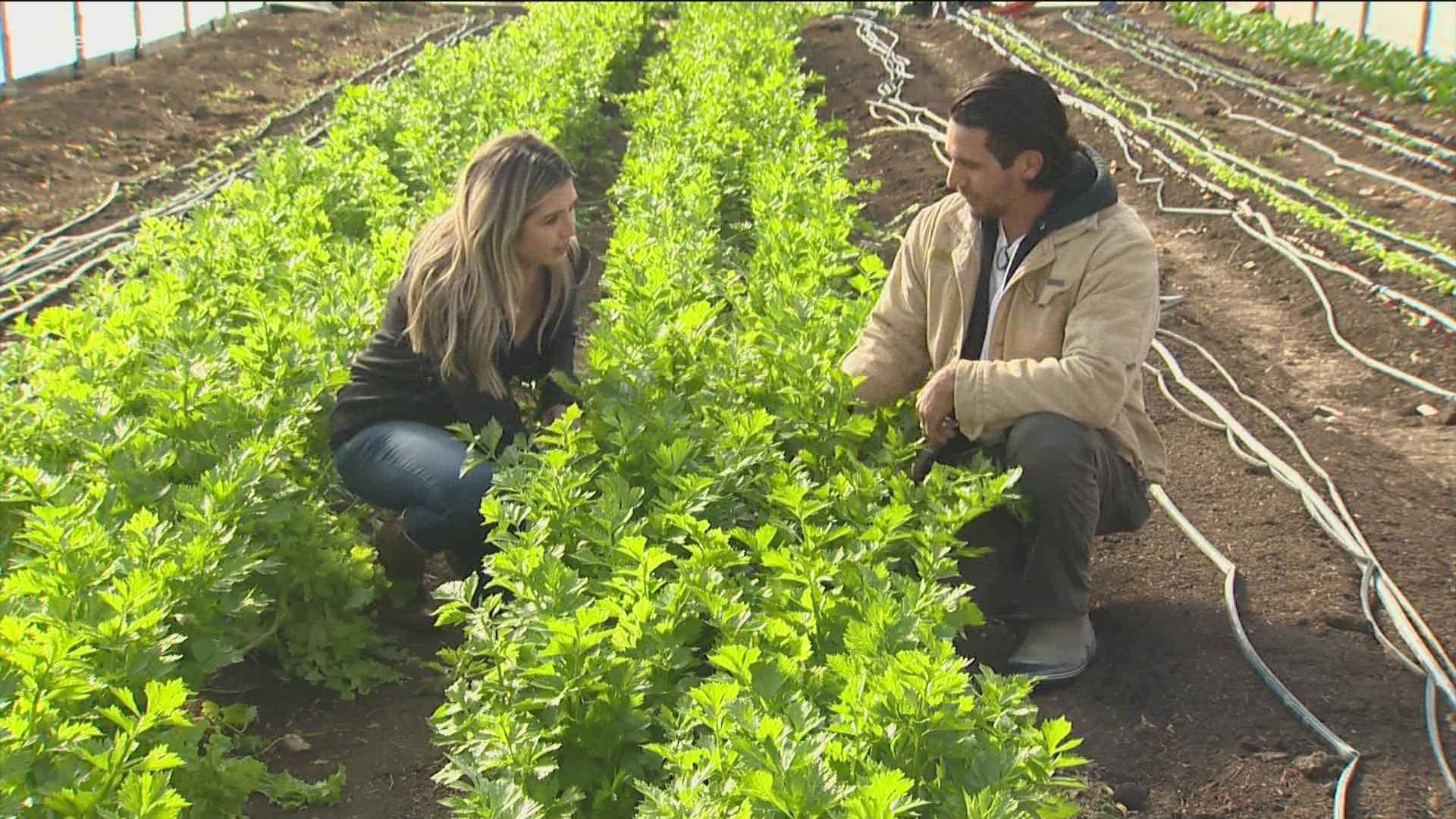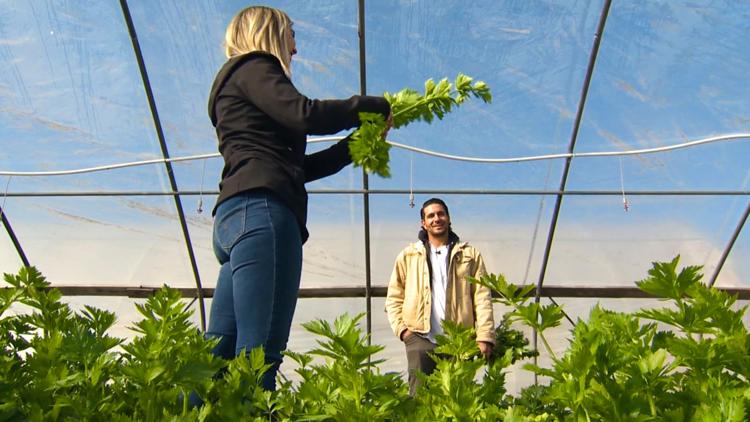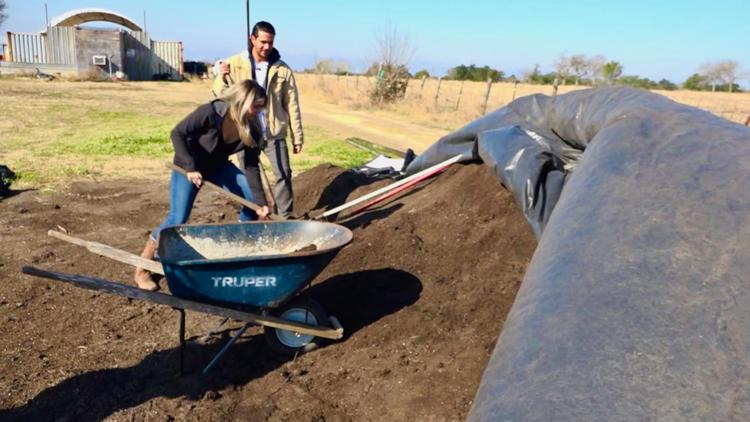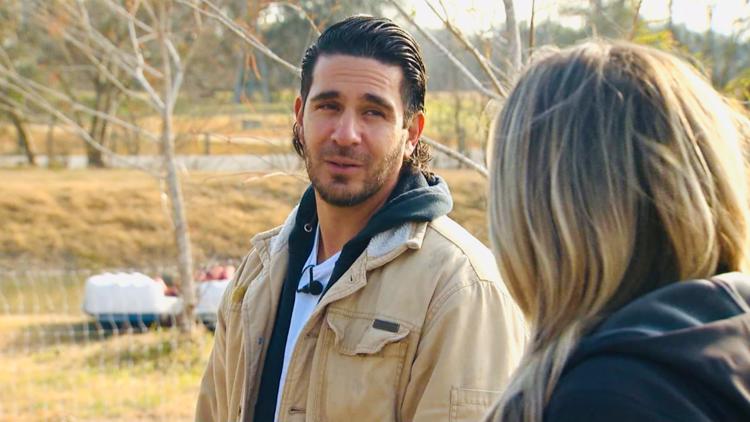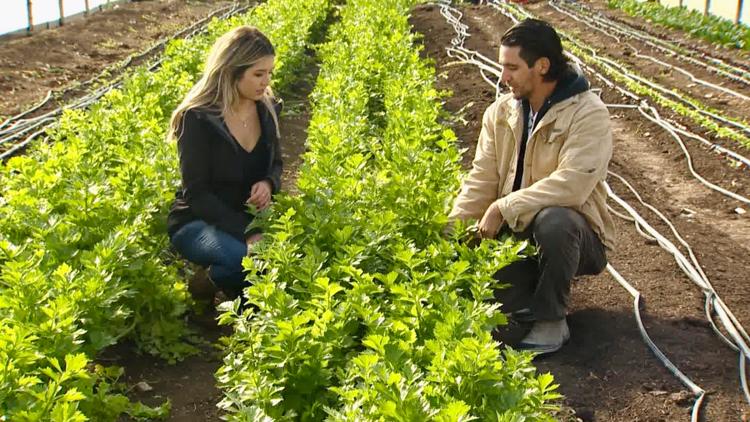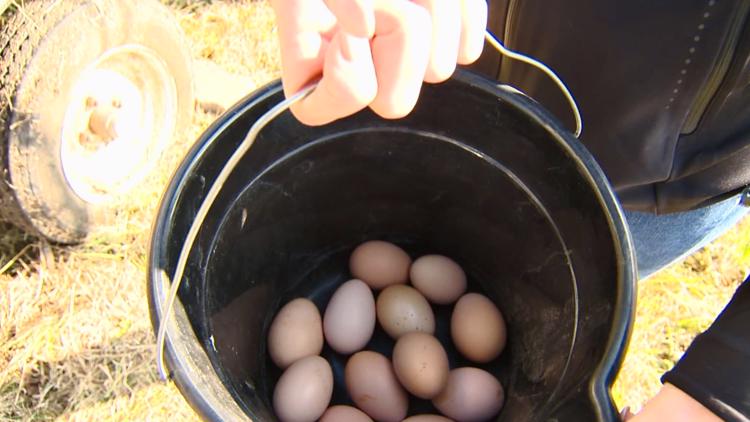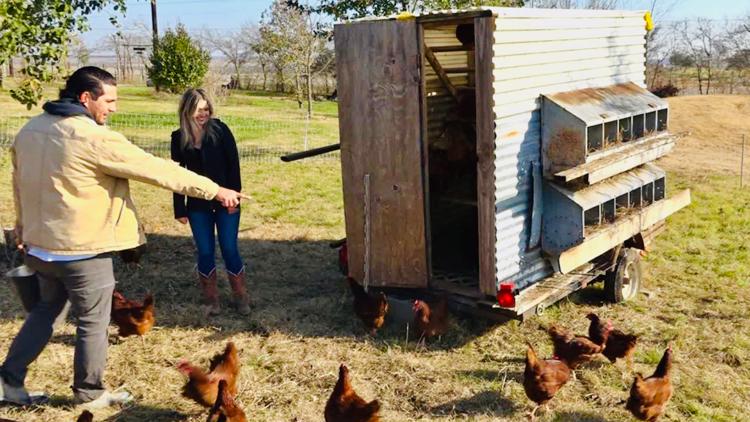LOCKHART, Texas — Texas has more farms than any other state in the country, and most of those farms are small, family-owned businesses. KVUE’s Conner Board took a trip to Emadi Acres Farm in Lockhart, Texas, to learn what it takes to be a farmer.
Derek Emadi is the sole owner and operator of Emadi Acres Farm. He will sometimes hire one other person to help with harvesting, but for the most part, it is a one-person operation.
“This is the real deal,” Emadi said. “I work hard every day, I rarely take a day off and it's not as easy as everybody thinks it is to grow.”
Since Board was a farmer-in-training for the day, Emadi taught her all about the compost he uses to help his plants grow.
“So, this particular one is mostly mulch, tree and leaf mulch,” Emadi told Board. “But they also put vegetable scraps and I think they do either cow or chicken manure.”
Emadi uses about eight wheelbarrows of compost per bed.
“So, the microbes in the soil, they eat this and their byproducts is what feeds the plants to grow bigger,” Emadi said.
After Board and Emadi shoveled some compost into the wheelbarrow, he took her inside one of the tunnels where he grows his vegetables.
“I do not use any chemical fertilizers or synthetic fertilizers or synthetic sprays,” Emadi said. “A lot of times, the soil is depleted with the large-scale agriculture.”
But this small-scale farmer has been putting a focus on making sure his food is good for the earth and for humans ever since he left his job as a special education teacher and became a full-time farmer in 2014. He is a big supporter of small farming and even rents some of his land out to other farmers.
“I feel like we need to encourage more people to get in this movement because, as you can see, the supply chains are kind of messed up during this time, during the COVID time,” Emadi said. “But if you know and you meet a local farmer, you don't have to worry about food scarcity because you'll have a direct contact with somebody.”
Emadi has 30 chickens who lay eggs and he grows all sorts of vegetables.
“My main crops would probably be carrots, beets, peppers, lettuce and some of these other ones,” said Emadi, pointing over to his spinach, lettuce and herbs.
Once his vegetables are harvested, washed and packed up, he sells them to wholesale accounts, restaurants, farmers markets and the Central Texas Farmers Co-Op. But there are a lot of challenges Emadi faces as a farmer before those crops get to be sold.
“Even though I have these high tunnels, there's no heat in them,” Emadi said. “So, I had to lay out a lot of frost cloth. So that took my whole day just rolling out cloth to protect everything.”
PHOTOS | Take This Job: Farming at Emadi Acres Farm
Farming also takes a toll on your body.
“My body is breaking down a little bit,” Emadi said. “I’m feeling pains in my knees and my back that I hadn't felt before.”
There are also no real days off. But Emadi is OK with that because he truly loves what he does every day.
“It can be anything from turning over beds, harvesting or laying compost down, or doing a little bit of weeding,” Emadi said. “I try to do my best to keep everything weed-free."
The fact that he gets to serve healthy food to Central Texans and can live with his two kids and wife right on the land he farms makes those challenges all worth it.
“My daughter, whenever we have guests, she tells everybody what everything is,” Emadi said with a smile.
His son also likes to explore the farm. Emadi views this farm as a family affair and loves teaching his young kids about farming.
“My boy comes in here and he'll mess up all the irrigation or he'll start pulling things,” Emadi said, laughing. “But yeah, I feel really proud that they come in here and play, or really play around the whole property.”
His other family member, Mama Moo the pup, can always be found close by, rarely leaving Emadi’s side.
Next, Emadi showed Board how to harvest celery and carrots. The celery was planted at the end of summer and lasts until May. He is able to harvest celery every week.
The last stop on the farm tour was the chicken coop. Every morning, Emadi looks for eggs in the nests and then lets the chickens out for the day. He then gives them a few scoops of feed and occasionally gives them some leftover or mushy veggies to eat.
Emadi encourages everyone to find a local farmer in their community and use them to get their produce. He says buying food from a farmer has many environmental and health benefits, even if the cost is slightly higher at the farmers' market compared to the grocery chains.
“Sometimes, it costs a little bit more, but it will translate to a cheaper health insurance bill because you go to the doctor less if you are actually eating more of this food,” Emadi said.
You can buy produce from Emadi Acres Farm by emailing Derek Emadi at emadiacresfarm@gmail.com.
For more stories like this one, check out our Take This Job page.
PEOPLE ARE ALSO READING:

